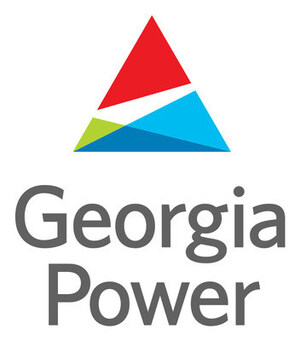ATLANTA, Aug. 31, 2017 /PRNewswire/ -- Georgia Power today filed a recommendation with the Georgia Public Service Commission (PSC) to continue construction of the Vogtle nuclear expansion near Augusta, Georgia. The project's co-owners, Oglethorpe Power, MEAG Power and Dalton Utilities, all support the recommendation. The recommendation is based on the results of a comprehensive schedule, cost-to-complete and cancellation assessment. The Georgia PSC is expected to review the recommendation and make a decision regarding the future of the Vogtle 3 & 4 project as part of the 17th Vogtle Construction Monitoring (VCM) proceeding.
"Completing the Vogtle 3 & 4 expansion will enable us to continue delivering clean, safe, affordable and reliable energy to millions of Georgians, both today and in the future," said Paul Bowers, chairman, president and CEO of Georgia Power. "The two new units at Plant Vogtle will be in service for 60 to 80 years and will add another low-cost, carbon-free energy source to our already diverse fuel mix."
Based on all factors considered, completing both units represents the most economic choice for customers and preserves the benefits of carbon-free, baseload generation. Assessments of the project included robust economic analyses; evaluation of various alternatives including abandoning one or both units or converting the units to gas-fired generation; and assumptions related to potential risks including future payments from Toshiba, availability of production tax credits and extension of loan guarantees from the Department of Energy (DOE). The latter two benefits were prescribed in the Energy Policy Act of 2005.
Georgia Power expects Vogtle Unit 3 will reach commercial operation in November 2021 and Unit 4 in November 2022. The total rate impact of the project remains less than the original estimate, after including anticipated customer benefits from federal production tax credits, interest savings from loan guarantees from the DOE and the fuel savings of nuclear energy. Once the project is on line, the company should still be able to offer retail rates below the national average with the additional long-term benefits from this new source of clean and reliable energy.
"Since the beginning of the Vogtle expansion, we have worked to minimize the impact of this critical project on customers' monthly bills and, even as we assessed our options of whether or not to continue the project, our focus has been to ensure long-term value," added Bowers. "Today, the total cost of electricity from Georgia Power is significantly below the national average, and when the project is completed, we expect that the new units will help keep energy bills competitive."
Georgia Power, which owns 45.7 percent of the new units, has invested approximately $4.3 billion in capital costs in the project through June 2017 and estimates that its cost to complete the project is approximately $4.5 billion, for a total Georgia Power capital cost forecast of approximately $8.8 billion. The Georgia PSC has already approved $5.68 billion in capital costs for Georgia Power's share of the project. With $1.7 billion in anticipated payments from Toshiba, the company's potential additional capital costs are approximately $1.4 billion. Based on the new assessments, the total estimated capital cost forecast for 100 percent of the project is approximately $19 billion.
Progress Continues at Construction Site
Georgia Power and the Vogtle project's other co-owners responded to the March 29 Westinghouse bankruptcy quickly, effectively and to the benefit of customers by protecting customers' investments to date in the Vogtle expansion and ensuring that progress continued uninterrupted.
Georgia Power also announced today that it has contracted with global engineering, construction and project management firm Bechtel to manage daily construction efforts. Bechtel will work under the direction of Southern Nuclear, the Southern Company subsidiary which operates the existing units at Plant Vogtle.
"We have seen a marked increase in productivity throughout this year, with the best improvement being the most recent improvement, and our experience provides every indication that we can do a better job than Westinghouse alone as we move forward to complete the project," said Bowers. "Since Southern Nuclear assumed control of the site from Westinghouse at the end of July, momentum has accelerated with a consistent focus on safe, high-quality construction. We expect this trend to continue with Bechtel."
The new units at Plant Vogtle will be the first in the United States to use Westinghouse AP1000 technology, one of the most advanced and safest nuclear designs in the world. Westinghouse remains on-site providing engineering, procurement and licensing support, as well as access to intellectual property needed for the project.
The construction of the new Vogtle units is driving thousands of American jobs and will create nearly 800 new nuclear careers once operational, including careers for many veterans of the armed services. More than 6,000 workers from across the country remain on-site today working to complete the nation's first new nuclear units in 30 years.
Recent milestones include:
- August 15 – Placement of the 1.4 million-pound steam generator into the Unit 3 nuclear island. Steam generators, measuring nearly 80 feet long, are heat exchangers used to convert water into steam using the heat produced in a nuclear reactor core. Each new AP1000 unit at Plant Vogtle requires two steam generators, all of which are currently on-site.
- August 18 – Placement of the Unit 4 pressurizer compartment. The pressurizer compartment was assembled on-site and is 60 feet tall, 40 feet wide and weighs 240,000 pounds. It will house the AP1000 pressurizer inside containment, which maintains the system pressure during operation and limits pressure transients. During the reduction or increase of plant load, the pressurizer accommodates volume changes in the reactor coolant.
- August 19 – Placement of the second of four accumulator tanks for the project. Part of the Westinghouse AP1000 passive core cooling system, accumulator tanks are spherical tanks that hold borated water inside the containment vessel within the nuclear island. In the event of a loss of reactor coolant, the tanks are designed to provide a high rate of coolant flow into the reactor for several minutes. There are two accumulator tanks per unit with each tank weighing approximately 85,000 pounds and standing more than 17 feet tall. Fabricated in and shipped from Italy, all four accumulator tanks needed for the completion of the units are now on-site.
New photos of progress at the construction site are available each month in the Plant Vogtle 3 & 4 Online Photo Gallery.
About Georgia Power
Georgia Power is the largest electric subsidiary of Southern Company (NYSE: SO), America's premier energy company. Value, Reliability, Customer Service and Stewardship are the cornerstones of the company's promise to 2.5 million customers in all but four of Georgia's 159 counties. Committed to delivering clean, safe, reliable and affordable energy at rates below the national average, Georgia Power maintains a diverse, innovative generation mix that includes nuclear, coal and natural gas, as well as renewables such as solar, hydroelectric and wind. Georgia Power focuses on delivering world-class service to its customers every day and the company is consistently recognized by J.D. Power and Associates as an industry leader in customer satisfaction. For more information, visit www.GeorgiaPower.com and connect with the company on Facebook (Facebook.com/GeorgiaPower), Twitter (Twitter.com/GeorgiaPower) and Instagram (Instagram.com/ga_power).
Cautionary Note Regarding Forward-Looking Statements
Certain information contained in this communication is forward-looking information based on current expectations and plans that involve risks and uncertainties. Forward-looking information includes, among other things, statements concerning the expected schedule and cost of completion for Plant Vogtle Units 3 and 4 and other future actions related to Plant Vogtle Units 3 and 4. Georgia Power cautions that there are certain factors that could cause actual results to differ materially from the forward-looking information that has been provided. The reader is cautioned not to put undue reliance on this forward-looking information, which is not a guarantee of future performance and is subject to a number of uncertainties and other factors, many of which are outside the control of Georgia Power; accordingly, there can be no assurance that such suggested results will be realized. The following factors, in addition to those discussed in Georgia Power's Annual Report on Form 10-K for the year ended December 31, 2016, and subsequent securities filings, could cause actual results to differ materially from management expectations as suggested by such forward-looking information: the impact of any inability or other failure of Toshiba to perform its obligations under its guarantee; the impact of any failure to extend the in-service deadline for federal production tax credits; the impact of any failure to amend the DOE loan guarantee to allow for additional borrowings; state and federal rate regulations and the impact of pending and future rate cases and negotiations; the impact of recent and future federal and state regulatory changes, as well as changes in application of existing laws and regulations; current and future litigation, regulatory investigations, proceedings, or inquiries; available sources and costs of fuels; effects of inflation; the ability to control costs and avoid cost overruns during the development construction and operation of facilities, which include the development and construction of generating facilities with designs that have not been finalized or previously constructed; the ability to construct facilities in accordance with the requirements of permits and licenses, to satisfy any environmental performance standards and the requirements of tax credits and other incentives, and to integrate facilities into the Southern Company system upon completion of construction; advances in technology; legal proceedings and regulatory approvals and actions related to Plant Vogtle Units 3 and 4, including Georgia Public Service Commission approvals and Nuclear Regulatory Commission actions; interest rate fluctuations and financial market conditions and the results of financing efforts; changes in The Southern Company's or Georgia Power's credit ratings, including impacts on interest rates, access to capital markets, and collateral requirements; the impacts of any sovereign financial issues, including impacts on interest rates, access to capital markets, impacts on foreign currency exchange rates, counterparty performance, and the economy in general, as well as potential impacts on the benefits of DOE loan guarantees; and the effect of accounting pronouncements issued periodically by standard setting bodies. Georgia Power expressly disclaims any obligation to update any forward-looking information.
SOURCE Georgia Power
Related Links
WANT YOUR COMPANY'S NEWS FEATURED ON PRNEWSWIRE.COM?
Newsrooms &
Influencers
Digital Media
Outlets
Journalists
Opted In






Share this article